By Bashar Abubakar and Ibukun Oguntola (Lead Writers)
There is global consensus for countries to have a strong health system that is resilient and responsive to the healthcare needs of its people. However, any efforts to strengthen health systems must begin at primary health care level, as it is the foundation of a nation’s healthcare system. More than 70% of an individual’s healthcare needs throughout their lifetime should be met at the primary health care level. It is therefore safe to say that primary health care is the bedrock of any country’s health system.
In March 2022, a primary health care summit was organised by the Federal Ministry of Health (FMoH) and the National Primary Health Care Development Agency (NPHCDA). Themed ‘Re-imagining Primary Health Care’, the ambitious goal was to set out a transformative plan to improve and expand primary health care in Nigeria by the year 2030. Innovative plans will be put in place to boost financing sources in order to: increase the number and quality of health care workers; upgrade the infrastructure of facilities; ensure the availability of equipment, essential medicines, and commodities; modernise information, data management and tech systems; and leverage medical technologies as alternative methods for service delivery. There will be a prioritisation of community participation, with a commitment to transparent, accountable, results-driven implementation.
The Summit brought together the executive and legislative arms of government, health professional associations, heads of multilateral agencies and implementing partners, private sector leadership and captains of industry, civil society, the media, traditional rulers, and religious leaders to discuss and find ways of making sure that the primary health care sector works.
In his opening remarks, His Excellency, The Vice President of the Federal Republic of Nigeria, Professor Yemi Osibanjo, opined that “a health system is only as strong as its primary health system. And this is true either in dealing with infected patients in a pandemic or effective vaccination programs, especially in populous countries. But it is especially the case that because of the preventive focus of primary healthcare, any investment in healthcare is a wise investment in the social and economic well-being of society since invariably fewer people will be ill and thus not require the more expensive specialist care.”
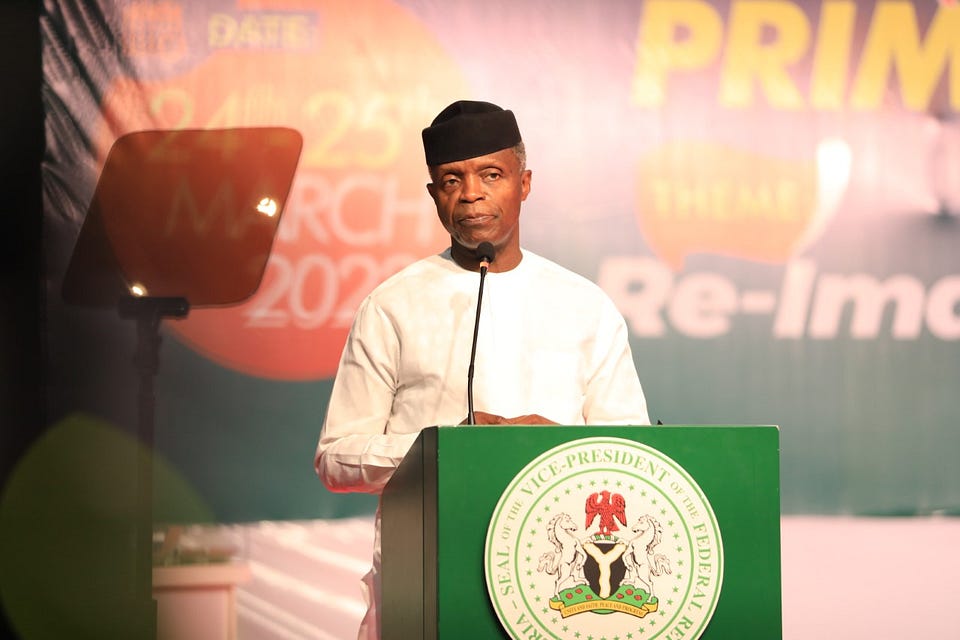
It is a well-known fact that most Primary Health Centres (PHCs) in Nigeria neither offer the range of services nor provide the quality of care required of them. This is due to multiple reasons, with underfunding being a core factor behind the chronic negect of primary health care. The Nigerian government spends less than 5% of its budget on healthcare and despite the N35 billion Basic Health Care Provision Fund (BHCPF) that was allocated to improve basic healthcare delivery in the 2021 budget, primary health care centres across the country continue to face many challenges, some of which are tied to inadequate Water, Sanitation and Hygiene (WASH).
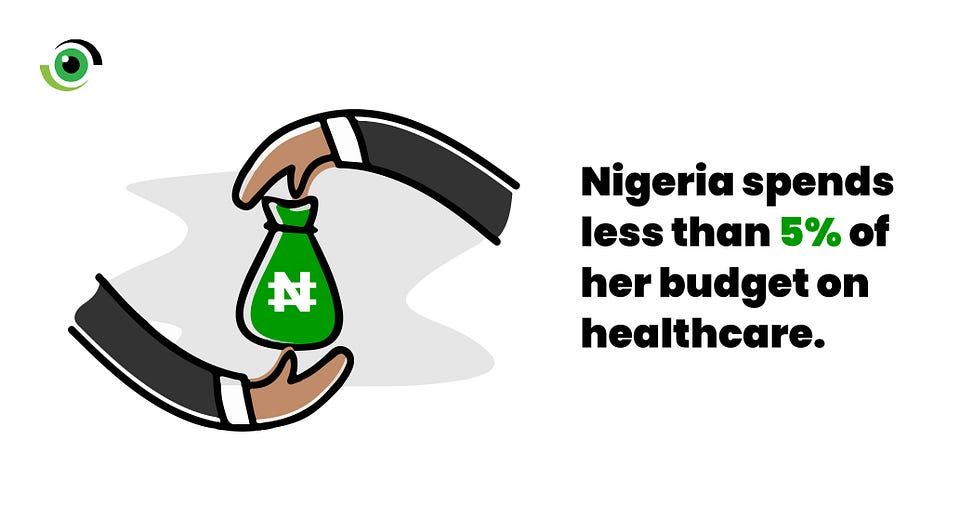
Making a case for change, the Executive Director of the National Primary Healthcare Development Agency, Dr Faisal Shuaib, stated that Nigeria’s “poor health indices are closely linked with sub-optimal performance of the PHCs across key building blocks of the health system such as inadequate human resources, sub-optimal financing, poor physical infrastructure, the limited demand for PHC services, limited availability of supplies”.
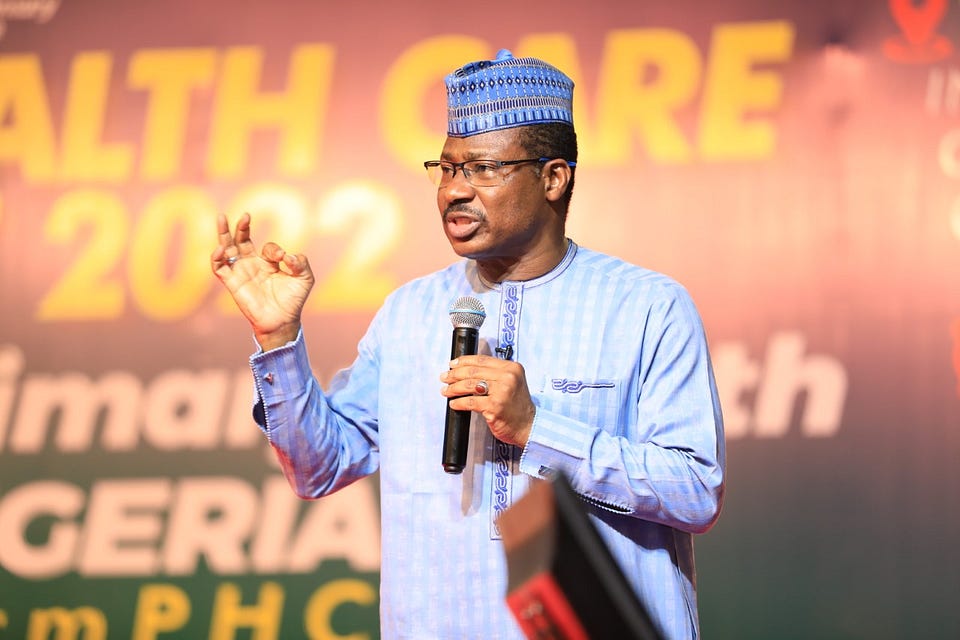
Funding speaks to all the challenges listed above and in a recent report, the Lancet Nigeria Commission recommended that the Nigerian government establish legally ring-fenced predetermined health budgets to ensure sustainable funding and strategic planning building on the BHCPF, and using the third National Strategic Health Development Plan (NSHDP III) to reach the goal of 15% of the annual budget allocated to health.
A strategic plan for revitalising primary healthcare delivery
A 10-year strategy for re-imagining PHC, based on a four-point agenda to improve PHC strategies and mobilise resources to standardise PHC practice, was unveiled at the summit.
The four points are,
Access and service delivery through PHC revitalisation: Increase and improve capacity of health care workers, ensure availability of equipment, essential medicines and commodities, upgrade the infrastructure of facilities, embed operational processes and leverage medical technologies as alternative methods for service delivery.
Health promotion and demand stimulation: Focus on community participation and behavioural change communication to stimulate demand.
Efficient programme delivery of a Ward Minimum Healthcare Package: More health for the money, not always more money for health. Deliver Ward Minimum Healthcare Package and improve maternal & new-born and child care and control of communicable diseases.
Ensure the right enablers and capabilities are in place to support the delivery of the strategy: Health Financing; Information and Data Management; Partnerships; Technology systems; Governance, Performance Management & Transformation Management.
According to the NPHCDA, the four-point agenda will help to strengthen the following areas:
- Human Resource: hiring, training, salaries and staff Retention
- Availability of essential drugs, commodities and basic equipment
- Expansion of PHC services across all PHC types
- Provision of emergency services (Ambulances)
- And the creation of a conducive environment for health care delivery
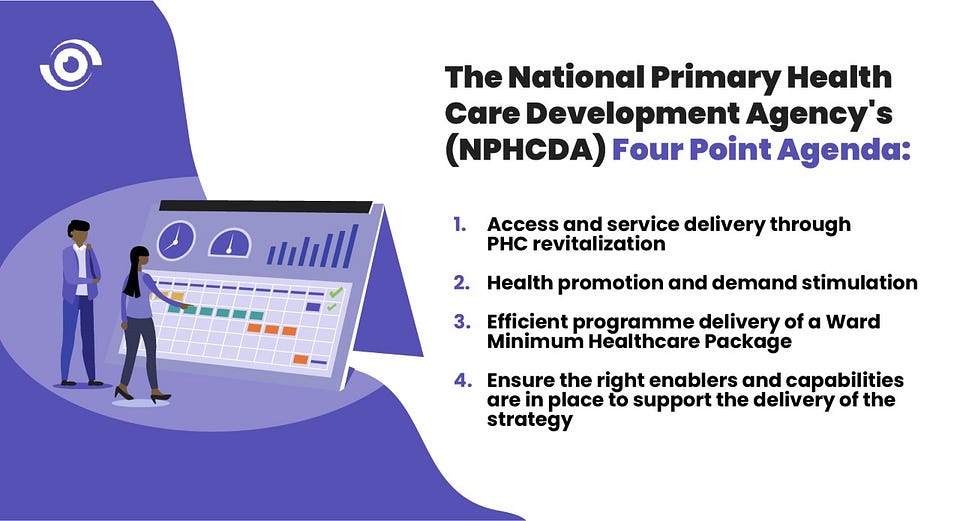
A critical challenge that has plagued the PHC system has been the paucity of funding. The 10-year plan identifies this as a critical gap that must be filled for the success of this strategy therefore, the sum of ₦2.7tn is estimated to be required to fund the plan for the period. However, from the required sum, an estimated ₦1.3tn is covered by existing resources from federal and state governments and partners, leaving a funding gap of ₦1.4tn. To bridge this funding gap, the NPHCDA will be leveraging on a coalition of government, organised private sector, donors and development partners to secure the required resources.
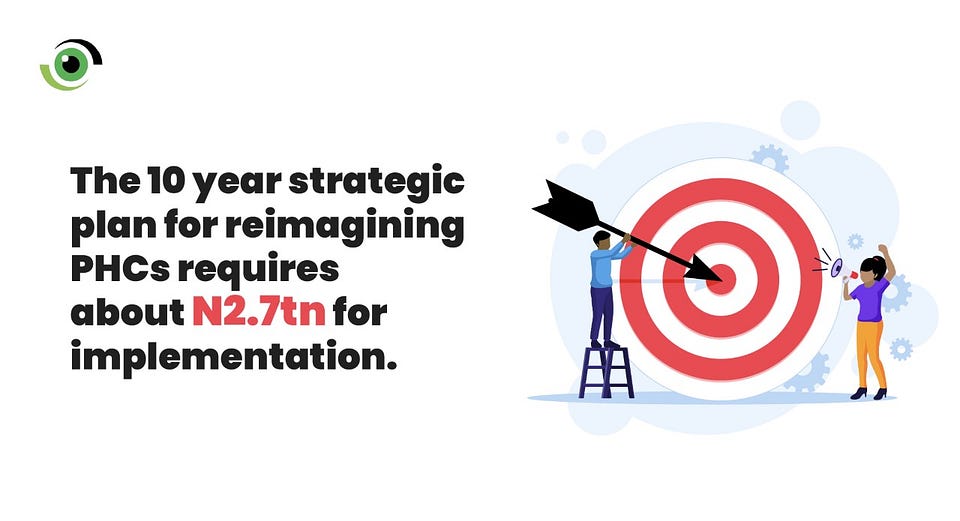
The private sector through the Private Sector Health Alliance of Nigeria (PSHAN) showed their commitment in playing their part to strengthen primary health care through the Adopt-A-Healthcare Facility-Programme (ADHFP). Their goal is to establish a primary healthcare centre in each of the 772 Local Government Areas (LGAs) in Nigeria.
Speaking at the summit, the Chairman, Senate Committee on Health, Distinguished Senator Ibrahim Oloriegbe, also proposed other funding mechanisms that could be explored to adequately fund the PHC system, such as an amendment of the National Health Act to increase allocation to the BHCPF to 2% of the consolidated revenue, the use of pro-health taxes to increase funding for the PHC system, among others.
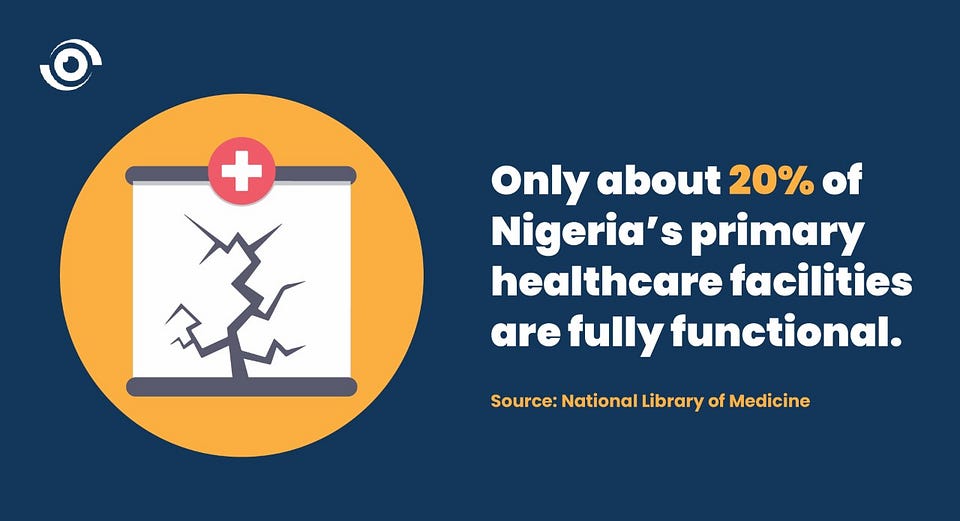
The impact of the 10-year strategy for re-imagining PHC is expected to be immense for Nigeria. Apart from improving health outcomes for citizens, the strategy would also help in human capital development through the provision of additional direct jobs as well as increasing economic growth.
The Way Forward
Almost half a century ago, the Alma Ata Declaration of 1972 identified primary healthcare as the key to attainment of health for all. Meaning that a robust, resilient PHC system is not only the foundation of any strong health system, it is also the foundation for attaining Universal Health Coverage. It is every Nigerian’s hope that through the ‘Re-imagining Primary Health Care’ strategy, Nigeria’s primary health care system will be transformed to enhance the health of Nigerians.
The reimagining PHC strategy is a bold and ambitious plan which, if actualised, will bridge critical funding gaps and enable a standard primary healthcare system in Nigeria. However, all plans are just plans untill implemented. For this strategy to go from being just an aspiration to reality, all key actors in healthcare in Nigeria — from the federal, state and local governments, to the private sector, development partners and individuals — must ensure that the required funding is generated and utilised efficiently to assure Nigerians access to a primary healthcare system that is inclusive, equitable and affordable.
Professor Olikoye Ransome-Kuti worked tirelessly to implement a PHC policy based on the Alma Ata Declaration, with the hope of leading a transformation of primary health care in Nigeria. To date, the country has not been able to meet his expectation of a primary health care system that focuses on preventative services over curative care and one that reduces the inequality in health status of it citizens. We have to seize that opportunity now.
As a good first step, all vertical projects, programs and interventions should be aligned into a horizontal, whole system approach which would help pool resources together, thus increasing funding to improve the overall PHC value chain.


